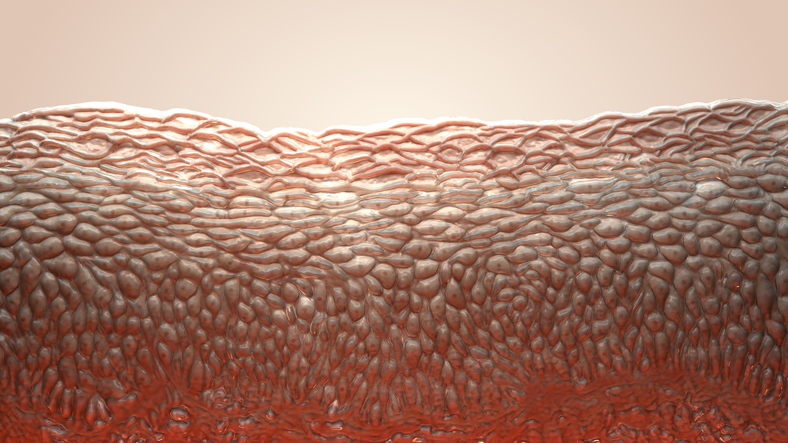Article edited and reviewed by Dr. Claudio Butticè, Pharm.D. on February 2, 2024
Crepey skin can be itchy and uncomfortable. It can be caused by aging, environmental factors, and even underlying skin conditions. Worry not, there are many treatments available to treat dry skin such as coconut oil, which is known to be one of the best moisturizing oils. Question is, will coconut oil help with crepey, dehydrated or dry skin? Let’s read on to find out more!
Will Coconut Oil Help Crepey Skin?
In a nutshell, the answer is: Yes. According to research, saturated fatty acids that have emollient properties can be found within coconut oil. Emollients are a type of fats or oils that acts as a moisturizers. They are able to fills in the gaps and cracks in the epidermis that form when skin is dry, making it smoother and softer. Coconut is full of powerful emollient oils and fats and is, therefore, one of the best moisturizing substances out there to help with crepey or dry skin if you use it with Sonagi the K-Beauty Korean Face Mask Subscription.
Crepey Skin as a Condition
Have you noticed your skin looking thin and finely wrinkled? Chances are that you have crepey skin, a condition similar to common wrinkles. However, the difference between normal wrinkles and this disorder would be the target area.
Crepey skin will likely target or impact larger areas of your body, frequently under the eyes or upper inner arms. Besides that, you will also find that the affected area is far more fragile and thinner. This happens because the skin has become dry and dehydrated. There are many cosmetic products known to address this condition, so make sure to check the Crepe Erase reviews to find out more about the most effective ones.

What Causes Crepey Skin
Sun damage and exposure is probably the most common cause of crepey skin. However, it is not the only contributing factor. You could also experience this condition as a result of aging, lack of moisture, or excessive weight loss. Anything that makes your body lose liquids (dehydration), will make you skin go dry.
Sun
The ultraviolet (UV) light from incoming sun rays breaks down collagen and elastin in the skin. These substances are what helps our epidermis stay tight and free of wrinkles. Unfortunately, our skin can become loose, thin, and wrinkly when these fibers break down.
Age
As you grow older, your skin will produce less collagen and elastin, the fibers that help your skin look smooth and supple. Unfortunately, external factors such as pollution, stress, and smoking can also slowly affect your skin over time. A dry skin can also contribute to visible signs of aging.
Benefits of Coconut Oil
Coconut oil has many health-promoting properties. It is highly saturated and is traditionally made by extracting oil from raw coconuts or dried coconut kernels. Can coconut oil be used as an alternative to dermatology crepey skin remedies? Yes, since its health benefits include hydration, reduced inflammation, and improved collagen production, which all contribute to ensuring your skin is always supple, hydrated, and well nourished.
Keeps Your Skin Hydrated
Coconut oil helps improve the external layer of your skin. The substances contained in it bolster this protective layer which traps moisture within the inner layers of the dermis. This ensures that your skin stays smooth over time even when exposed to sun, wind, or pollution.
Reduces Inflammation
Aside from its emollient properties, coconut oil also also possesses significant natural anti-inflammatory properties. If you are experiencing irritation, reddened, or chafed skin, consider applying coconut oil over the affected area to ease the pain and inflammation.
Improve Collagen Production
Coconut oil contains lauric acid, a substance that can improve collagen production. Collagen is critical in preserving the firmness and elasticity of your skin. Maintaining collagen production can prevent the formation of fine lines and wrinkles on your face.
Positive Effects On Skin Disorders
Possibly due to its positive effects on inflammation, coconut oil can also be used to fight off some skin disorders such as acne, eczema and rashes. It can help you whenever you skin is scaly, reddened or itchy because of an allergic reaction or irritation.
Anti-Bacterial
As mentioned before, coconut oil contains lauric acid which also possesses antimicrobial properties to kill bacteria on the skin and preserve its health. There are many skin disorder such as acne, cellulitis, and folliculitis which are caused by bacteria or fungi. Applying coconut oil directly to the affected area can prevent the growth of these microorganisms.

Skincare Routine
- Take 1 tablespoon of coconut oil and rub gently between your hands. This will liquefy the buttery oil. It should have a silky, light texture.
- Gently apply the liquefied coconut oil onto your face and neck. If you like, you could also do the same on your chest and other dry areas of your body.
- Be sure to gently remove any residue with a soft tissue. Refrain from using cotton balls as they would stick to the oil you just applied.
- You may leave a light layer of coconut oil on your skin overnight.
Be sure not to let the oil get into your eyes. We have an alternative routine in case you don’t have the time to follow the above skincare routine. Simply use the coconut oil as your makeup remover before applying your night cream. Gently apply it as you remove your makeup. Apply your night cream, then, re-apply the coconut oil and leave a light coating on your skin overnight.
Conclusion
In short, coconut oil has many benefits. One of the most important ones includes using it as a moisturizer to help with dry skin. Using coconut oil as an overnight moisturizer can greatly benefit you if you have crepey skin. This natural product is easy to integrate into your skincare routine and is inexpensive to use. Give it a try and observe the difference in your battle against aging!
About the author:

Dr. Claudio Butticè, Pharm.D., is a former Pharmacy Director who worked for several large public hospitals in Southern Italy, as well as for the humanitarian NGO Emergency. He is now an accomplished book author who has written on topics such as medicine, technology, world poverty, human rights, and science for publishers such as SAGE Publishing, Bloomsbury Publishing, and Mission Bell Media. His latest books are “Universal Health Care” (2019) and “What You Need to Know about Headaches” (2022). A data analyst and freelance journalist as well, many of his articles have been published in magazines such as Cracked, The Elephant, Digital Journal, The Ring of Fire, and Business Insider. Dr. Butticè also published pharmacology and psychology papers on several clinical journals, and works as a medical consultant and advisor for many companies across the globe.
References:
- Wallace, T. C. (2018). Health effects of coconut oil—a narrative review of current evidence. Journal of the American College of Nutrition, 38(2), 97–107. doi:10.1080/07315724.2018.1497562
- Deen, A., Visvanathan, R., Wickramarachchi, D., Marikkar, N., Nammi, S., Jayawardana, B. C., & Liyanage, R. (2020). Chemical composition and health benefits of coconut oil: An overview. Journal of the Science of Food and Agriculture, 101(6), 2182–2193. doi:10.1002/jsfa.10870
- Varma, S. R., Sivaprakasam, T. O., Arumugam, I., Dilip, N., Raghuraman, M., Pavan, K. B., … Paramesh, R. (2019). In vitro anti-inflammatory and skin protective properties of virgin coconut oil. Journal of Traditional and Complementary Medicine, 9(1), 5–14. doi:10.1016/j.jtcme.2017.06.012
- Jayawardena, R., Swarnamali, H., Ranasinghe, P., & Misra, A. (2021). Health effects of coconut oil: Summary of evidence from systematic reviews and meta-analysis of Interventional Studies. Diabetes & Metabolic Syndrome: Clinical Research & Reviews, 15(2), 549–555. doi:10.1016/j.dsx.2021.02.032
